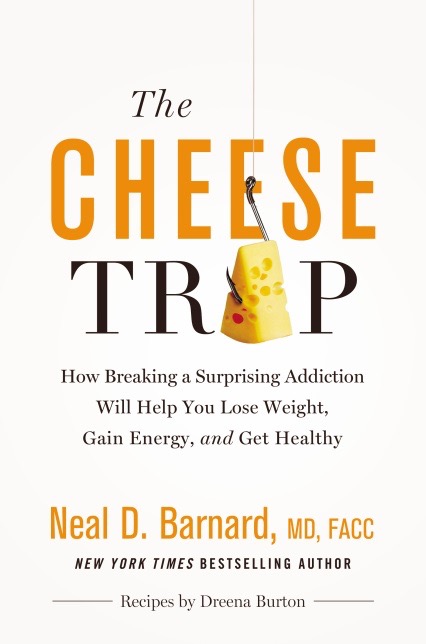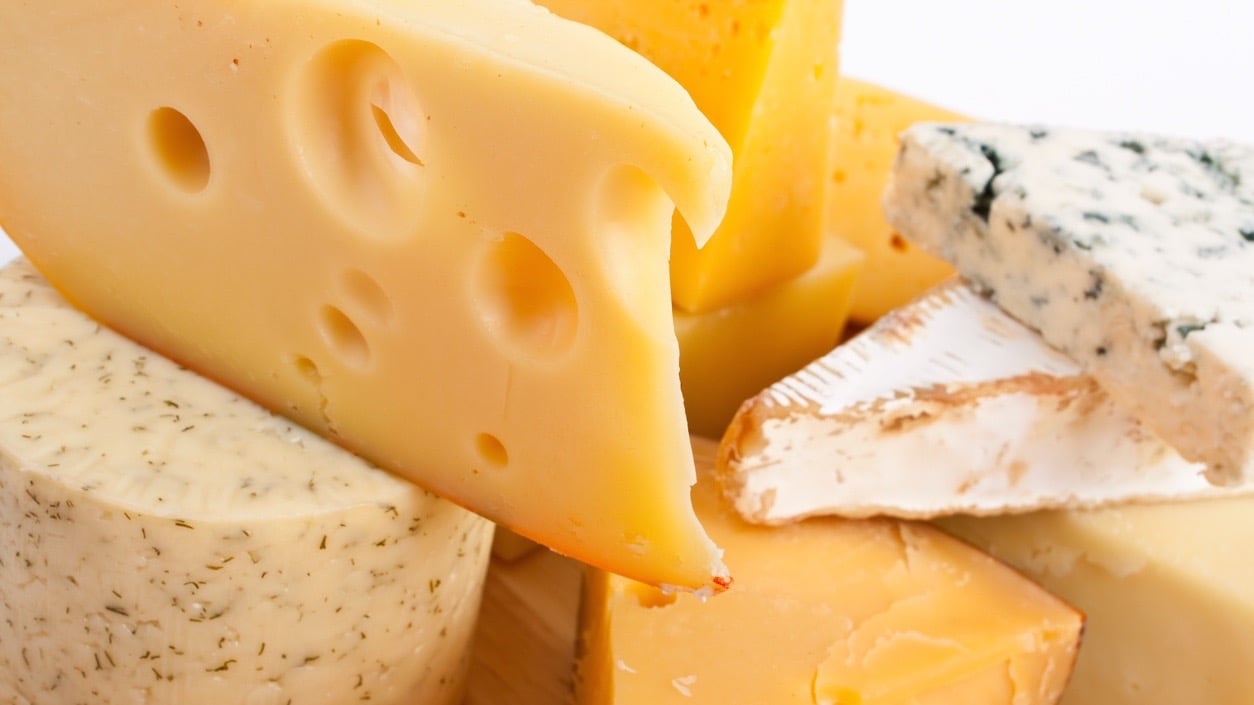Though Dr. Neal Barnard, an adjunct associate professor of medicine at the George Washington University School of Medicine and Health Sciences has been pro-plant based diets for years, with his latest book, he’s officially declaring war on cheese.

As someone who can’t imagine a world without pizza, macaroni and cheese, grilled cheese—I could go on—Barnard’s latest book, The Cheese Trap, out today, is kind of crushing my soul. Nevertheless, the book is full of reasons to pass on the salty, addictive food, something that Barnard started investigating after working on a NIH-funded study comparing vegan and non-vegan diets for diabetics.
“The vegan diet won hands down, finding better weight loss, blood sugar control, and everything else. But despite these benefits, several of our participants told me that the one food they really missed was cheese… Cheese was the food they craved, and some described it almost like an addiction,” says Barnard.
After a closer look, Barnard discovered that cheese is in fact “surprisingly fattening” and that the average American eats a massive amount of calories in cheese every year (which shouldn’t come as a shock if the average American is downing 23 pounds of it annually). And while many of us might think that snacking on some string cheese is a healthy choice, Barnard argues that American’s love affair with the dairy product is anything but. Instead, Barnard indicts cheese’s addictive properties—which he attributes to the salt and fat in cheese, along with the fact that cheese contains casomorphins.
“Perhaps most important are casomorphins—opiates that are released as the milk protein casein is digested,” says Barnard. “They attach to the same brain receptors that heroin or morphine attach to. They are nowhere near as mind-numbing as morphine, but we believe their opiate effect is strong enough to keep us coming back for more.”
If passing on the fried mozzarella sticks currently requires a Herculean effort on your part, Barnard has some tips for “breaking out of the cheese trap.”
Identify Your Cheese Replacements
“Top your salad with avocado instead of feta. If your go-to convenience meal is a cheese pizza, skip the cheese and top it with caramelized onions, garlic, artichokes, and your favorite vegetables. And sprinkle on some nutritional yeast, which you’ll find in the supplement aisle at health food stores. Body builders buy it, because it is high in protein with essentially no fat, but it happens to taste just like cheese and goes great on pizza and vegetables,” says Barnard. “The Cheese Trap also has recipes for everything from fettuccine Alfredo to cheesecake, without a drop of dairy.”
Quit Cheese for 21 Days
“That’s a short time, but it’s more than enough to see real changes,” says Barnard. “You’ll feel better physically, your weight will start to come down, and your tastes will start to change in a good way.”
Rope in Your Family
“They will benefit, just as you will. And, in turn, they can support your resolve. When a family makes a diet change together, it is much more likely to stick,” says Barnard. “Same thing when a group of friends or coworkers jump in together. You’ll support each other, share successes, and have fun.”
Correction: A previous version of this post spelled “Barnard” as “Bernard.”




















